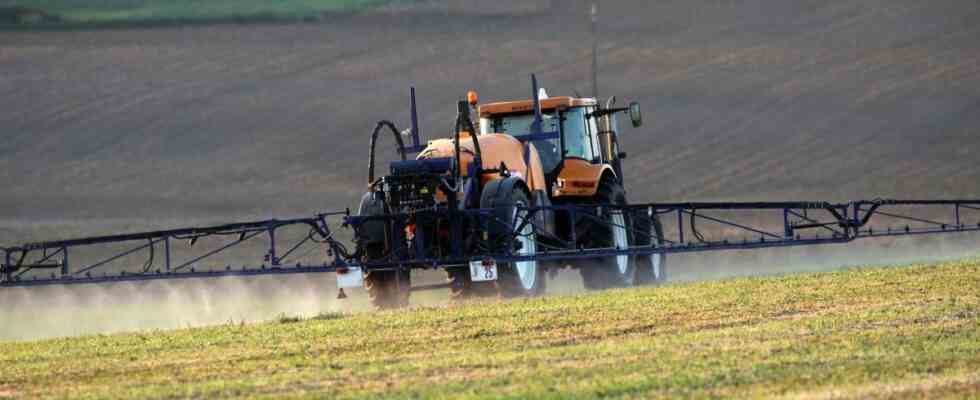The decision is rare and welcomed by environmental associations. The National Agency for Food, Environmental and Occupational Health Safety (ANSES) announced on Wednesday that it intended to ban the use of plant protection products based on S-metolachlor. Widely used for the cultivation of corn, sunflower or soybeans, this herbicide is accused of polluting groundwater. Recent checks carried out have indeed shown that the metabolites of this substance frequently contaminate tap water with concentrations “exceeding the quality standards set by European legislation”, underlines the Agency, which has just initiated a procedure of withdrawal of S-metolachlor from the market. To fully understand this decision, 20 minutes make the point.
What exactly is S-metolachlor?
Less known than glyphosate, S-metolachlor is nevertheless very widely used in the agricultural world. With 1,946 tons sold per year, it is also the third most used herbicide in France. Authorized since 2005, the product is marketed by Syngenta, one of the giants of the agrochemical sector based in Switzerland. It is mainly used for the cultivation of corn but also for that of sunflower, soybean or beet.
Why does ANSES want to ban it?
Widespread, this agricultural herbicide is responsible for massive pollution of French groundwater. Once the field has been sprayed, the product breaks down into metabolites which migrate to the environment, polluting the soil as well as surface water and groundwater on a long-term basis. Checks of tap water have thus proven the frequent presence of these metabolites “at concentrations exceeding the quality standards set by European legislation”, underlines ANSES.
“To preserve the quality of groundwater”, the agency therefore calls for the banning of this herbicide. But this will not happen immediately because a “grace period” should be opened allowing the sale of S-metolachlor for another six months and its use for one year. In 2021, after an initial unsatisfactory report, ANSES had already introduced “restrictive measures in the marketing authorizations for products based on S-metolachlor, in particular a reduction in the maximum doses of use for corn, sunflower, soybeans and sorghum. »
What are the reactions to this decision?
On the side of the environmental associations, we are of course crying victory. “Our association has finally been heard in its fight against S-metolachlor, a pesticide that has contaminated our countryside,” says Dominique Le Goux, health and environment project manager at Eau et Rivières de Bretagne. For nearly two years, the association had been fighting to demand the banning of this pesticide. Not without difficulty since his requests addressed to the prefect of the region as well as to the ministers of Agriculture, Health and Ecological Transition had each time remained unanswered. “It’s a positive signal and a step in the right direction,” adds Arnaud Clugery, spokesperson for the Breton association, who is however cautious. “S-metolachlor will be applied again this year,” he says. And each time molecules are banned, other products arrive on the market with the same consequences. »
In the agricultural world, the reactions are for the time being awaited. Contacted by Reuters, the FranceAgriMer agricultural office thus judged that it was premature to comment on the impact of this decision on cereal production. One of its members, in charge of field crops, also declared that there was currently no alternative treatment to S-metolachlor.

